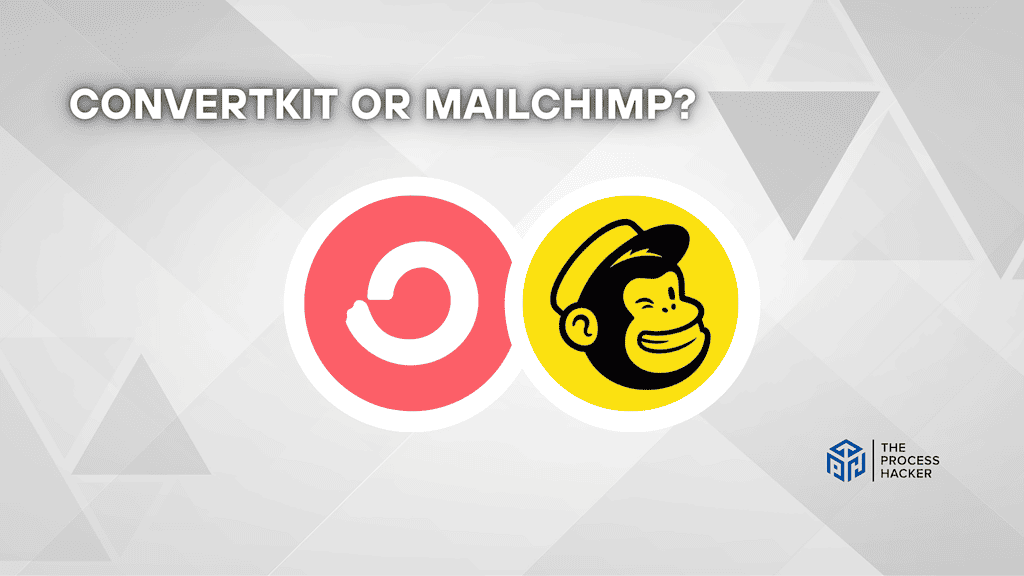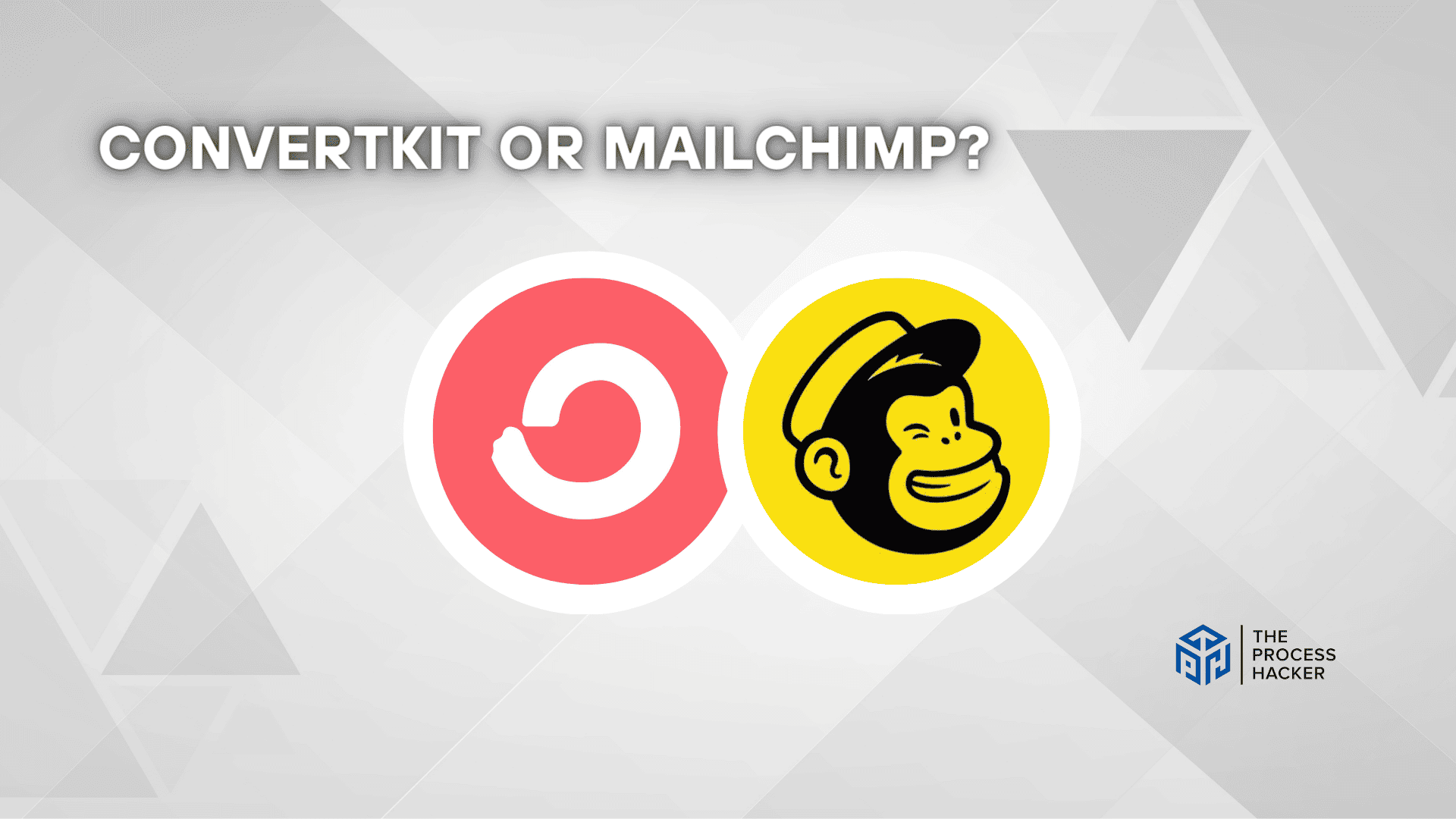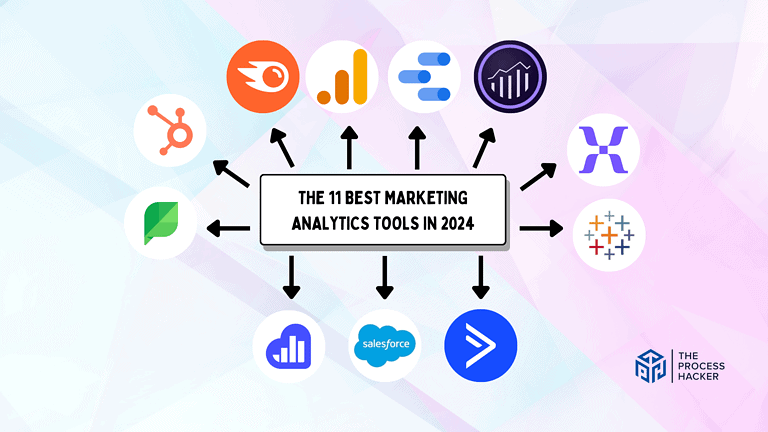ConvertKit vs Mailchimp: Which Email Marketing Software is Better?
Are you tired of struggling with your email marketing?
Let’s face it, choosing the right email marketing software can be overwhelming. With so many options out there, how do you know which one is best for your business?
If you purchase through our partner links, we get paid for the referral at no additional cost to you! For more information, visit my disclosure page.
Well, we’re here to help make that decision a little easier by comparing two top contenders – ConvertKit and Mailchimp. No more spending hours figuring out confusing platforms or dealing with limited features.
With ConvertKit, you’ll have everything you need to create powerful automated campaigns and engage with your audience effortlessly. Or, if design and aesthetics are important to you, Mailchimp offers beautiful templates that will elevate your brand’s image.
Don’t waste any more time guessing which software is better.
Read this comprehensive ConvertKit vs Mailchimp review to make the right email marketing automation platform for your needs!
Brief Overview: ConvertKit vs Mailchimp
First, I’ll give you a quick overview of ConvertKit vs Mailchimp:
ConvertKit
ConvertKit is a powerful email marketing software designed specifically for creators. It provides a suite of tools aimed at helping you grow your audience, connect with your subscribers, and monetize your passion.
Key Selling Points:
- User-friendly interface: Easy to navigate and set up
- Automation features: Efficiently manage campaigns and subscriber journeys
- High deliverability rates: Ensures emails reach your audience
- Segmenting and tagging: Tailor content to different audience groups
- Integration with numerous platforms: Enhance its functionality
Mailchimp
Mailchimp is a comprehensive email marketing solution known for its versatility. It offers extensive features, including email campaigns, automation, analytics, and CRM tools.
Its adaptability makes it a favorite among businesses of all sizes looking for a robust, all-in-one marketing platform.
Key Selling Points:
- All-in-one marketing platform: Offers a wide range of tools beyond email marketing
- Advanced analytics: In-depth insights into campaign performance
- AI-powered design: Create compelling emails with ease
- Customization options: Extensive templates and design flexibility
- E-commerce integration: Ideal for online stores and businesses
Quick Verdict: ConvertKit vs Mailchimp
ConvertKit simplifies email marketing, focusing on what you need most: building and maintaining a direct relationship with your audience. Its intuitive interface lets you quickly create and automate email campaigns without deep technical know-how.
This ease of use, combined with powerful segmentation and personalization tools, makes it ideal if you’re a blogger, artist, or solo entrepreneur who wants to grow your audience without getting bogged down in complexity.
Mailchimp goes beyond basic email marketing with a suite of tools, including CRM, analytics, and advanced segmentation. Its strength lies in the depth and breadth of features, catering to businesses that require a robust, all-encompassing marketing solution.
Whether running an e-commerce store or a larger company, Mailchimp offers the complexity and integration you need to execute sophisticated, data-driven marketing strategies.
Product Overview: ConvertKit vs Mailchimp

What is it?
ConvertKit is an email marketing automation software that simplifies collecting, nurturing, and engaging with your email subscribers. With a clean and easy-to-use interface, ConvertKit allows you to create beautiful emails, build automation workflows, and segment your audience effortlessly.
Mailchimp, on the other hand, is more than just an email marketing tool. It’s a comprehensive marketing platform that offers a wide range of features, including email marketing, social media ads, landing pages, and even postcards.
Who is it for?
ConvertKit is designed for bloggers, podcasters, course creators, and other online entrepreneurs who want an intuitive and focused email marketing tool to engage their audience and grow their online business.
Mailchimp is best suited for small to medium-sized businesses that need a multi-faceted marketing tool. Whether you’re looking to send email newsletters, create social media campaigns, or build a landing page, Mailchimp has got you covered.
What makes it special?
ConvertKit is unique in its simplicity and focus. While many email marketing tools can be overwhelming with their myriad features, ConvertKit sticks to what it does best – email marketing. Its visual automation builder and tagging system make it a standout choice for managing and understanding your subscribers.
Mailchimp sets itself apart with its broad range of marketing capabilities. Being an all-in-one marketing platform, it allows small businesses to manage all their marketing needs in one place, making it a time-saving and efficient solution.
What does it do?
ConvertKit helps you collect email addresses, send out automated email sequences, deliver opt-in incentives, and much more. Its visual automation builder lets you see your email funnels in a single glance, making it easier to understand and manage.
Mailchimp enables you to do everything from creating email campaigns and building landing pages to running social media ads and analyzing your marketing efforts. Its robust analytics feature provides valuable insights into your campaigns’ performance, helping you make data-driven decisions.
Quick Comparison: ConvertKit vs Mailchimp
| Key Features | ConvertKit | Mailchimp |
|---|---|---|
| #1) Pricing | Winner | |
| #2) Free Plan | Winner | |
| #3) Design & Functionality | Winner | |
| #4) Email Marketing Tools | Winner | |
| #5) Email Templates | Winner | |
| #6) Email Marketing Campaigns | Tie | Tie |
| #7) Sign-up Forms | Winner | |
| #8) Landing Pages | Tie | Tie |
| #9) Reporting | Winner | |
| #10) Marketing Automation | Winner | |
| #11) Customer Support | Winner | |
| #12) Deliverability Optimization | Tie | Tie |
| #13) Integrations | Tie | Tie |
| Overall | For Content Creators | Design-Oriented |
Feature Comparison: ConvertKit vs Mailchimp
Let’s compare the features of these email marketing services so you can make the right decision for you and your business.
#1) Pricing
ConvertKit offers a straightforward pricing structure. You pay $15 per month for up to 300 subscribers, and the price increases as your list grows. It also offers a Creator Pro Plan, which provides additional features like advanced reporting and priority support.
On the other hand, Mailchimp pricing is more tiered. The Essentials Plan costs $13 per month for up to 5000 email sends and includes basic features like email marketing and multi-user accounts. For experienced email marketers and more advanced features like predictive demographics and premium support, you’ll need to upgrade to the Standard or Premium Plan.
When it comes to pricing, ConvertKit edges out Mailchimp. While both platforms offer similar basic features, ConvertKit’s pricing is more affordable for those with smaller lists. Plus, with ConvertKit, you’re not paying for extra features you may not need or use.
Verdict: For pricing, ConvertKit is the more cost-effective option.
#2) Free Plan
Mailchimp provides a free plan with 1000 monthly email sends and limited features. This plan is ideal if you’re starting and need to reach a moderate number of contacts.
ConvertKit’s free plan supports up to 1000 subscribers and includes unlimited access to features like landing pages, forms, and broadcasts. This plan is excellent for you if you’re focusing on building a subscriber base and need versatile tools without the upfront cost.
In evaluating the free plans, ConvertKit stands out for its unrestricted access to essential marketing tools, even for a free plan. This makes it a more appealing option if you require more than just basic email-sending capabilities and are looking to grow your subscriber base with engaging content automation.
Verdict: ConvertKit offers more value for the free plan with its unlimited features and subscriber-centric approach.
#3) Design & Functionality
Mailchimp shines with its visually appealing interface and diverse range of customizable templates. This allows you to easily create unique and eye-catching email campaigns, even without deep design expertise. It’s an excellent choice for crafting emails that stand out.
ConvertKit, in contrast, offers a streamlined, intuitive design focused on simplicity and functionality. This approach is perfect if your priority is efficiency and ease of use, especially for straightforward, content-centric emails.
Regarding design and functionality, ConvertKit emerges as the more favorable option for those who appreciate a balance of simplicity and efficiency. While Mailchimp offers more design versatility, ConvertKit provides a user-friendly experience that makes email campaign creation quick and hassle-free.
Verdict: For design and functionality, ConvertKit wins for its focus on simplicity and ease of use, catering well to those who value a straightforward approach to email marketing.
#4) Email Marketing Tool
Mailchimp offers a robust suite of features for email marketing, including advanced segmentation, A/B testing, and comprehensive analytics. This email marketing platform suits you well if you prioritize detailed campaign management and data-driven strategy refinements.
ConvertKit, focusing on ease of use, provides essential tools like automation, tagging, and subscriber management. This choice is ideal if you value simplicity and effectiveness, particularly in managing and engaging your subscriber list without complexity.
When choosing the best email marketing tool, it’s all about your specific requirements. Mailchimp excels for those who need a wide array of features and detailed insights into their campaigns. ConvertKit, while more straightforward, offers efficient management of the essentials.
Verdict: Mailchimp is the recommended choice for the email marketing tool for its comprehensive features and in-depth analytics, catering to those who seek a full suite of tools for detailed campaign management.
#5) Email Templates
ConvertKit offers a minimalist approach to email templates, focusing on clean, text-based designs. This simplicity is ideal for personal blogs or businesses aiming for a straightforward, content-focused newsletter.
On the other hand, Mailchimp shines bright with its vast array of professionally designed email templates. You can choose from hundreds of customizable options that cater to every event and occasion. If you’re all about creativity and design, Mailchimp is a treasure trove to explore.
Weighing both email marketing platforms, Mailchimp takes the lead in this category. Its wide variety of templates provides greater flexibility and creative control, allowing you to create emails that genuinely resonate with your brand and audience.
Verdict: For creative flexibility and design variety, go with Mailchimp.
#6) Email Marketing Campaigns
ConvertKit offers a streamlined approach to setting up email marketing campaigns. With its intuitive interface, you can easily create automated email sequences, segment your audience, and track performance. It’s especially appreciated by bloggers, podcasters, and other content creators for its simplicity and efficiency.
On the other hand, Mailchimp takes things up a notch with its advanced email marketing features. Not only can you set up automated campaigns, but you can also use predictive analytics, A/B testing, and customer journey mapping tools. These features help you optimize your campaigns and achieve better results.
In this category, your best choice depends on the scale and complexity of your campaigns.
ConvertKit is the go-to for a more focused, creator-centric approach, providing simplicity and efficiency. With its robust toolset and detailed analytics, Mailchimp is better suited for larger-scale, diverse marketing endeavors.
Thus, it’s a matter of matching the tool to your specific marketing objectives.
Verdict: For streamlined, creator-focused campaigns, ConvertKit is your ally. For expansive, analytics-driven campaigns, Mailchimp takes the lead.
#7) Sign-up Forms
ConvertKit makes the creation of signup forms a breeze. You can customize fields according to your needs and even add a tag to new subscribers directly from the form. This feature supports your efforts in audience segmentation right from the get-go.
Meanwhile, Mailchimp also offers robust sign-up form capabilities. You have the option to choose from a variety of form types, including pop-up forms and embedded forms. Furthermore, you can also design your forms to match your brand’s aesthetics.
After weighing both options, it’s hard to ignore the added customization that ConvertKit provides. Although Mailchimp offers various form types, the tagging feature in ConvertKit’s sign-up forms gives it an edge, as it aids in organizing your subscriber list from the beginning.
Verdict: ConvertKit vs Mailchimp for Sign-up Forms? ConvertKit is the better choice.
#8) Landing Page Creation
ConvertKit’s landing pages are designed with simplicity and effectiveness in mind, catering mainly to bloggers and online creators. These pages are straightforward to set up, offering a range of templates that prioritize ease of use and focus on content over complex design.
In contrast, Mailchimp’s landing page feature stands out with its advanced design capabilities and customization options. They provide a broader range of design templates and more flexibility for businesses looking to create more visually intricate and interactive pages.
The choice between ConvertKit and Mailchimp regarding landing page creation depends on your specific needs.
ConvertKit is ideal if you’re looking for ease of use and content-focused design. However, Mailchimp is better for those needing more advanced design features and customization options.
Both excel in their respective areas, making it a balanced choice based on individual preferences and needs.
Verdict: For ease of use and content-focused design for a landing page, ConvertKit is the way to go. For more advanced design capabilities and customization, Mailchimp is the better choice.
#9) Reporting
ConvertKit provides reporting features that are easy to understand, focusing on the essentials like open rates, click rates, and subscriber growth. This approach is particularly beneficial if you prefer a no-frills, direct insight into your email campaign’s performance.
On the other side, Mailchimp offers a more comprehensive reporting system. It includes detailed analytics on audience behavior, email marketing campaign comparison, and e-commerce integration, making it a robust tool for in-depth analysis and strategic planning.
After reviewing both, it’s evident that Mailchimp offers more comprehensive reporting features. While ConvertKit delivers basic reporting well, Mailchimp provides a deeper dive into your data, allowing for a more nuanced understanding of your campaign’s performance.
Verdict: For comprehensive and detailed analytics, choose Mailchimp.
#10) Marketing Automation
ConvertKit’s marketing automation feature shines with its blend of simplicity and power. It allows you to send targeted drip emails at the perfect moment and customize a subscriber’s path based on their actions. This hands-off approach to email marketing provides endless growth possibilities for your business.
Mailchimp’s marketing automation capabilities are diverse and extensive. Mailchimp offers a wide array of automation options, from sending welcome emails to new subscribers to targeting subscribers based on their behavior or preferences. Plus, they provide pre-built automation workflows, saving you precious time.
Regarding marketing automation, ConvertKit and Mailchimp cater to different needs.
ConvertKit is the better choice for simplicity and ease of use, especially if you’re new to marketing automation or prefer a more straightforward approach. On the other hand, if your marketing strategies are complex and require advanced automation capabilities, Mailchimp is the superior choice.
Verdict: For advanced and detailed marketing automation capabilities, ConvertKit is the recommended choice.
#11) Accessible Customer Support
When it comes to customer support, ConvertKit offers a variety of channels. You can reach their team through email or live chat, and they also provide a knowledge base filled with helpful articles and tutorials. This makes it easy to find answers to your questions at any time.
Conversely, Mailchimp also provides vital customer support. They offer 24/7 email support and live chat support, and an extensive knowledge base. Plus, premium users get access to phone support, providing additional assistance.
After evaluating both, it’s evident that Mailchimp offers more comprehensive customer support. While ConvertKit does provide helpful resources, the 24/7 support and phone service offered by Mailchimp gives it a slight edge.
Verdict: ConvertKit vs Mailchimp for comprehensive self-help resources and support? Mailchimp is the superior choice.
#12) Deliverability Optimization
Regarding ConvertKit, the deliverability optimization feature ensures that your emails reach your subscribers’ inboxes. It focuses on maximizing open rates and minimizing the chances of your emails being marked as spam.
Mailchimp, on the other hand, also provides a high deliverability rate. It leverages advanced algorithms and tools to optimize email delivery, ensuring your messages land right where they need to be – in the inbox.
In the aspect of deliverability optimization, both ConvertKit and Mailchimp excel, each employing advanced techniques to ensure high deliverability rates. It’s a tie in this category, as both platforms are committed to ensuring your emails reach their intended destination.
ConvertKit is more appealing if you prefer a platform that’s consistently fine-tuning its delivery infrastructure. Mailchimp, however, is an excellent choice if you value a more algorithmic approach to optimizing deliverability.
Verdict: In terms of deliverability optimization, it’s a draw. Both ConvertKit and Mailchimp excel in ensuring your emails reach their intended recipients.
#12) Integrations
ConvertKit offers a range of integrations specifically tailored to content creators and bloggers. These integrations enhance the functionality of websites, e-commerce platforms, and membership sites, making connecting with various tools that support your online presence easier.
Mailchimp, in contrast, provides a broader spectrum of integrations. Its compatibility with a wide range of e-commerce, CRM, and social media platforms makes it a versatile choice for businesses looking to integrate their email marketing with various other business tools.
In the realm of integrations, your choice should depend on the scope and nature of your business. Both platforms offer strong integration capabilities, but they cater to different types of needs.
ConvertKit is ideal if you focus on content creation and need integrations that support this niche. Mailchimp, however, is the better choice if you require various integrations to complement a more diverse business model.
Verdict: For specialized content creator integrations, ConvertKit is the go-to option. For a broader range of integrations suitable for varied business needs, Mailchimp excels.
Final Thoughts on ConvertKit vs Mailchimp
After thoroughly examining the features and capabilities of ConvertKit and Mailchimp, it’s clear that each has its strengths and weaknesses.
ConvertKit, with its straightforward yet powerful automation tools and intuitive interface, is an excellent choice for content creators. Its simplicity doesn’t compromise its functionality, making it a robust platform for managing and growing your email list.
On the other hand, Mailchimp, with its extensive design options and diverse automation capabilities, is ideal for campaigns where the design takes center stage. Its easy-to-use design tools and pre-built workflows make it an excellent platform for creating visually appealing emails with minimal hassle.
In summary, you should choose:
- ConvertKit: If you’re a content creator seeking a simple, effective email marketing tool.
- Mailchimp: If your campaign leans more towards design-oriented emails.
Choose the tool that best suits your business automation needs, and watch your email marketing efforts take off!









